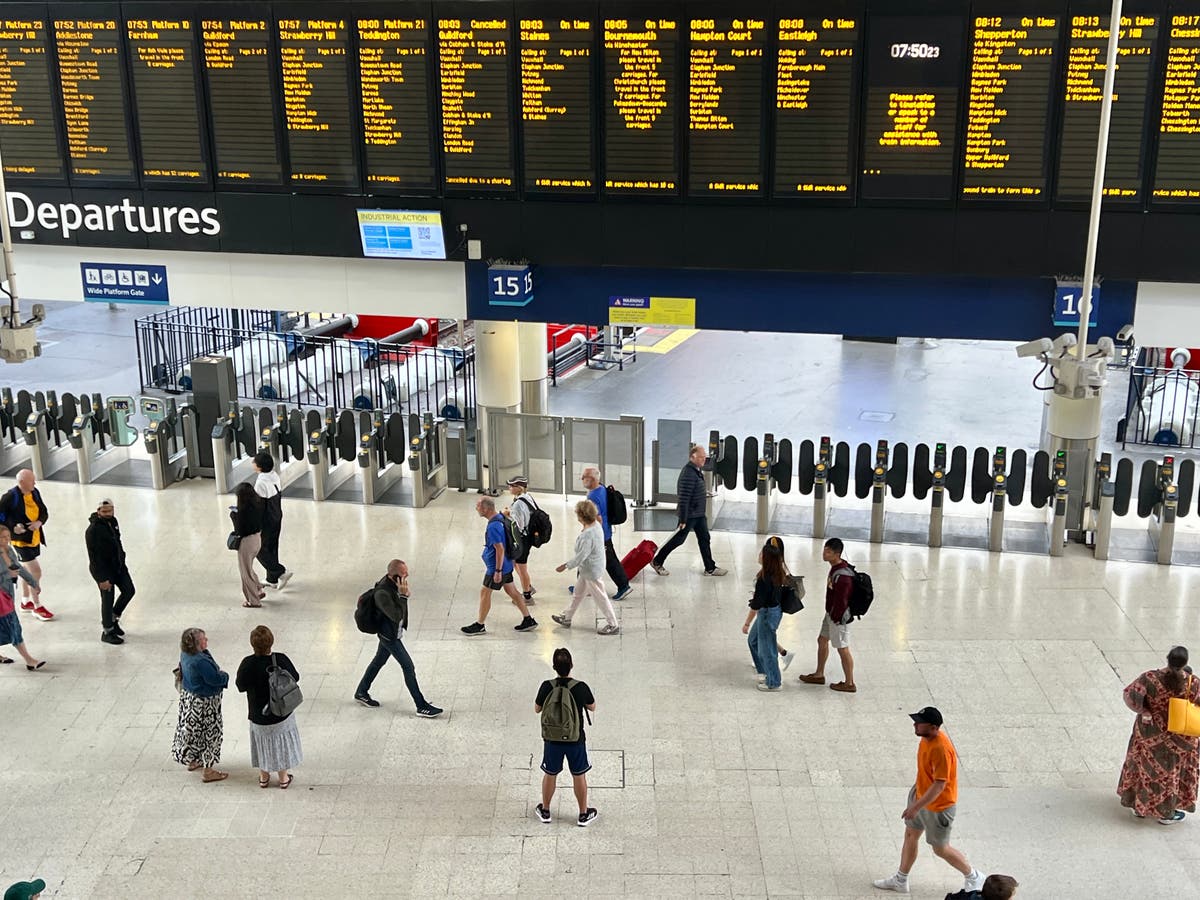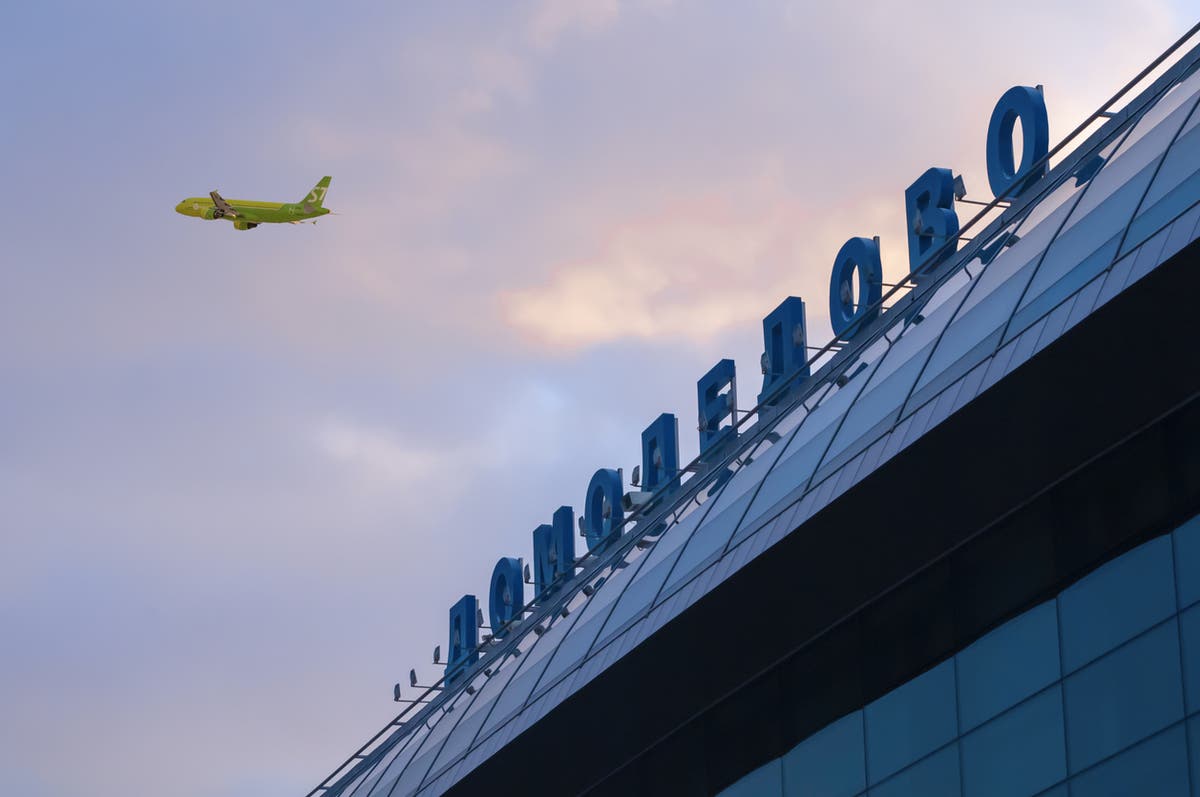Train strikes 2023: Everything you need to know about August and September rail industrial action
RMT and Aslef unions have been walking out and banning overtime intermittently for the last 14 months

Sign up to Simon Calder’s free travel email for expert advice and money-saving discounts
Get Simon Calder’s Travel email
The first national rail strikes since the 1980s began in June 2022. The RMT and Aslef trades unions are involved in parallel disputes with the leading English train operators over pay, jobs and working conditions. The government – which contracts the rail firms to run trains – will sign off the final settlement. But the two sides appear as far apart as ever.
The biggest rail union, the RMT, says walk-outs will continue in late August and early September. Meanwhile Aslef, representing train drivers, says many of its members have not had a pay rise for four years.
As with any industrial action, strikers seek to cause as much disruption as they can. With rail commuting sharply down since the Covid pandemic, leisure passengers now comprise the main target.
Both unions are demanding no-strings increases that take into account the high level of inflation. The unions say they are prepared to discuss reforms, but these must be negotiated separately. They will expect any changes to be accompanied by commensurate pay boosts.
Train operators and ministers insist modernisation is essential following the collapse of rail revenue. Much of the “bedrock” of season ticket sales has vanished since the Covid pandemic. The only way to award even a modest increase, the employers maintain, is to fund it out of efficiency savings,
Caught in the middle: the long-suffering passenger. For 14 months, national rail strikes and other forms of industrial action have scuppered the travel plans of tens of millions of train passengers. Stoppages have been called frequently, causing massive disruption and making advance travel planning difficult.
These are the key questions and answers.
Who is taking industrial action, and when?
The biggest rail union, the RMT, says 20,000 RMT members across 14 train operators will walk out on the two key Saturdays at the end of the summer holidays: 26 August and 2 September.
The strikes will particularly affect families returning from holidays, as well as music fans attending festivals in Leeds and Reading Festival over the late August bank holiday.
The 26 August walkout will hit rugby supporters attending the England v Fiji match at Twickenham, while both stoppages will affect full Saturday programmes of football matches.
The RMT has so far staged walk-outs on 33 days in the current wave of national strikes, with Aslef stopping work on 13 previous occasions.
Announcing the strike, RMT general secretary Mick Lynch said: “The mood among our members remains solid and determined in our national dispute over pay job security and working conditions.”
“We have had to call further strike action as we have received no improved or revised offer from the Rail Delivery Group.
“The reason for this is the government has not allowed them a fresh mandate on which discussions could be held.
“Our members and our union will continue fighting until we can reach a negotiated and just settlement.”
The train drivers’ union, Aslef, has been mounting “action short of a strike” in the shape of a series Monday-to-Saturday overtime bans. The most recent ended on Saturday 12 August.
Mick Whelan, general secretary of Aslef, says: “We have varied the action to show the industry – and passengers – their reliance on overtime.”
Which train operators are involved in the national disputes?
The RMT strikes and Aslef overtime bans are aimed at rail firms in England contracted by the Department for Transport. They include the leading intercity operators:
London commuter operators:
Operators focusing on the Midlands and north of England:
What is happening about the London Underground?
The Underground, the London Overground and the Elizabeth Line are unaffected by the planned industrial action. But some routes that offer alternatives to rail services hit by industrial action, such as in south London, may be busier than normal.
Which trains will run during the RMT strikes?
Passengers can expect normal service on:
On affected train operators, these are the likely service levels:
Southeastern: Most trains cancelled. Links wil run from London Victoria to Bromley South, London Bridge to Dartford and Sevenoaks and London St Pancras International to Ashford International, Canterbury and Ramsgate, with reduced service hours.
Southern: A reduced timetable will operate on all days of industrial action. Some statons will not be served.
Gatwick Express: Cancelled on all days of industrial action, but alternative Southern services between London and the airport are available (and much cheaper).
Thameslink: The central London core between London Bridge and St Pancras International will be closed during all industrial action. On the rest of the network, a much-reduced service will run between 7am and 7pm.
Southwestern: A skeleton network will link London Waterloo with Guildford, Southampton, Ascot and Hampton Court.
Great Western Railway (GWR): A core service is likely between London Paddington and Oxford, Cardiff, Bath, Bristol, Exeter and Plymouth.
CrossCountry: A reduced network with nothing north of Edinburgh or west of Plymouth is likely. Cardiff to Nottingham trains will not run, and the usual link from Birmingham to Stansted Airport will terminate at Peterborough.
Chiltern: The network will be reduced to a limited service linking London Marylebone with Aylesbury, Banbury and Oxford.
West Midlands Railway: Most services are likely to be cancelled.
Avanti West Coast: The basic pattern to and from London Euston will be one train each hour to/from:
Northern: Most trains are likely to be cancelled. On some routes, such as Crewe to Manchester, Transport for Wales will operate as normal.
TransPennine Express: A very limited number of trains will run on the Manchester Piccadilly-Leeds-York-Scarborough route; between Preston and Manchester Airport; and between Sheffield and Cleethorpes.
East Midlands Railway: The operator says: “Only travel by rail if absolutely necessary and if you do travel, expect severe disruption.” But intercity services and local links are likely to be operated.
LNER: On RMT strike days, LNER traditionally runs regular services on the London-York-Newcastle-Edinburgh route, with first departures around 7am and final arrivals around 10pm. London-Leeds services will run approximately 7am-6pm.
Great Northern: “An amended timetable with fewer services will run. Services will be busier than usual, especially in peak hours. It’s likely you will need to queue and you may not be able to board your chosen service. You should allow extra time for your journey.”
Greater Anglia: Skeleton service on the London Liverpool Street-Colchester-Ipswich-Norwich lines, as well as links to and from Stansted airport.
Will Eurostar be affected?
No, but connections to and from the train operator’s main hub at London St Pancras International may be difficult because of industrial action at all three domestic train operators at the station (East Midlands Railway, Southeastern and Thameslink) serving the station.
Why has Aslef been taking industrial action?
Mick Whelan, Aslef’s leader, said: “Sadly, it is clear from the actions of both the train operating companies and the government that they do not want an end to the dispute. Their goals appear to be to continue industrial strife and to do down our industry.
“We don’t want to inconvenience the public. We just want to see our members paid fairly during a cost of living crisis when inflation is running at above 10 per cent, and to not see our terms and conditions taken away.
“It’s time for the government and the companies to think again and look for a resolution.”
What do the train operators say?
A spokesman for the RDG said: “With further strike action the RMT are once again targeting customers looking to enjoy various sporting events, festivals, and the end of the summer holidays, disrupting their plans and forcing more cars onto the road.”
“We have now made three offers, the latest of which would have given staff pay rises of up to 13 per cent as well as job security guarantees and the RMT executive have blocked this without a convincing explanation.
“We remain open to talks and we have said repeatedly that we want to give our people a pay rise, but until the union leadership and executive is united in what it wants and engages in good faith with the 30 per cent shortfall in revenue the industry is continuing to grapple with post Covid, it is difficult to move forward.
“Unfortunately, the repercussion of this impasse affects our staff, customers, and the communities across the country that rely on the railway.”
What does the government say?
A spokesperson for the Department for Transport said: “The RMT leadership’s decision to call more strikes and cynically target the travelling public over the bank holiday weekend is disappointing.
“The government has facilitated fair and reasonable pay offers. However, union bosses are opting to prolong this dispute by blocking their members from having a vote on these offers – we continue to urge that members are given their say, and disruption is brought to an end.”
I have a ticket booked for a day hit by strikes. What can I do?
Passengers with Advance, Anytime or Off-Peak tickets can have their ticket refunded with no fee if the train that the ticket is booked for is cancelled, delayed or rescheduled.
Train operators are likely to offer flexibility to travel on a wide range of non-strike days.
Passengers with season tickets who do not travel can claim compensation for the strike dates through Delay Repay.
What are the alternatives?
As always, long-distance coach operators – National Express, Megabus and Flixbus – will keep running, though seats are becoming scarce and fares are rising.

 Troov
Troov 































